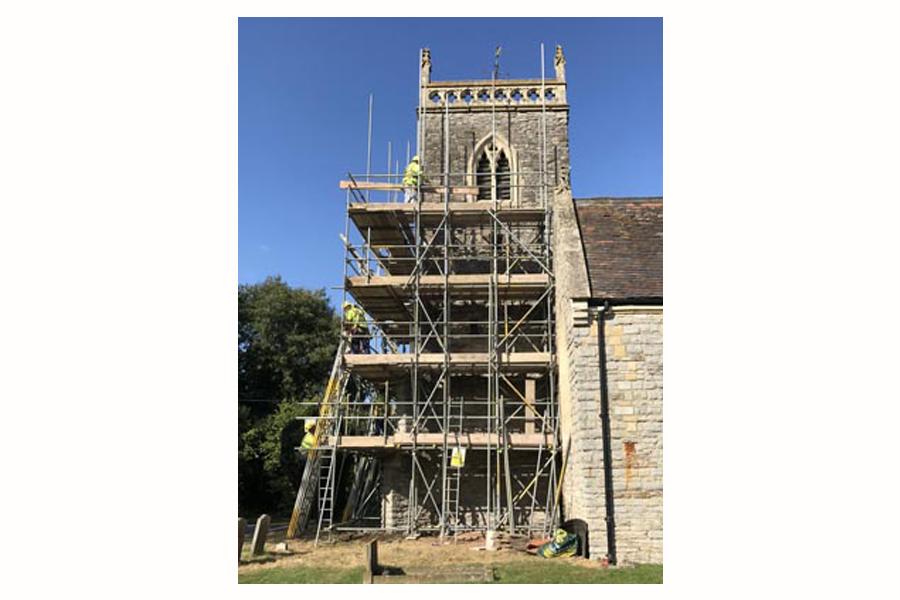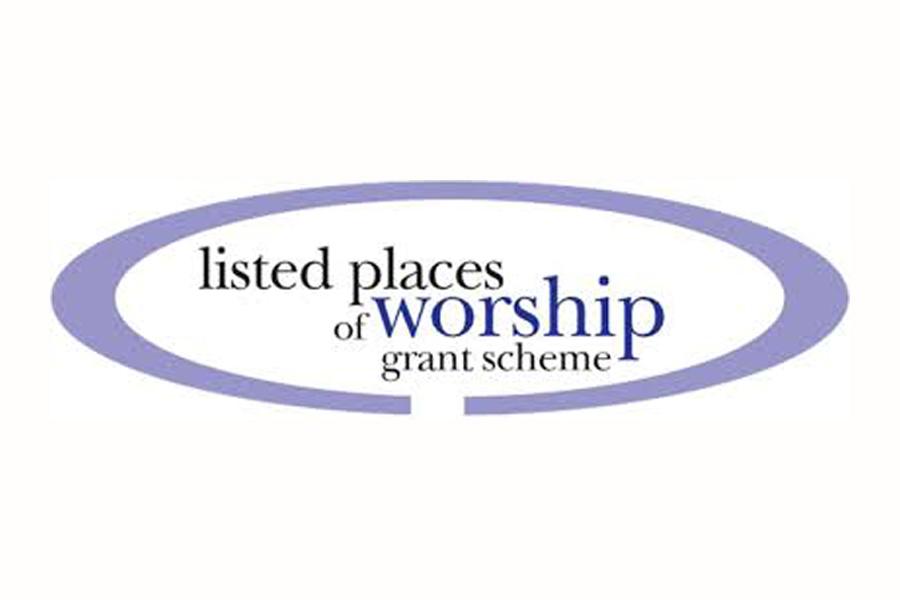Worcester and West Midlands Funders
Below are funders that exclusively work in the West Midlands so are not included in the national guide.
Worcestershire & Dudley Historic Churches Trust -www.worcesteranddudleyhistoricchurches.org.uk
The Trust awards relatively small financial grants for the repair, preservation and refurbishment of Christian places of worship in Worcestershire and Dudley only. They consider applications for assistance with major items of maintenance and repair to the structure and fabric of places of worship of architectural significance (not necessarily old) of all Christian denominations. Their current priority in awarding grants is the repair or replacement of the external fabric of the building – walls, roof, windows and rainwater goods to ensure a building is watertight and so prevent further deterioration; they may also award a grant for safety reasons e.g. the repair or replacement of lightning conductors. At present their modest grants are usually for £500 only.
Droitwich Preservation Trust - No website, phone 01905 796677.
They give small grants to stimulate public interest in the preservation of architectural and other amenities of the county of Worcestershire.
Worcestershire Councillors' Divisional Fund - www.worcestershire.gov.uk
A Worcestershire Councillors' Divisional Fund (WCDF) has been created to enable local members to access money to help local initiatives and support 'good works' which play an important role in promoting the economic, social and environmental well-being of communities within Worcestershire. Each of the 57 members of the Council have an allocation of £10,000 (per financial year), to spend on locally-determined initiatives within their Divisions. They have reasonable discretion as to how to spend their allocation, as long as they are lawful for the Council, rational and are properly recorded. The WCDF is aimed at one-off items of expenditure or supporting community activity, local and national charities or voluntary organisations within the local Division. Formal applications for bids to the WCDF can only be submitted by the local County Councillor, however individuals or organisations can contact their local Councillor and seek support from the Fund. If you do want to contact your Councillor for support, it would be helpful if you could provide them information on how support from the WCDF would promote or improve the economic, social or environmental well-being of the local area, or those people within it.
Worcester City Council small community grants - www.worcester.gov.uk/community-centres/worcester-small-community-grants
To support the delivery of the City Plan, Worcester City Council has set aside a Worcester Community Grant pot to support organisations delivering services on the front line of their communities. Funding is available to community groups, charities and voluntary sector organisations to support new community projects in Worcester.
Grants are available to a maximum threshold of £5000. It is strongly recommended that grants should be applied for at least two months before the event as the grants panel meets at the beginning of the month. Full criteria and application form is on the website.
The Big Local DY10 HBG - www.biglocaldy10.com/grants/
Their small grants programme has reopened and is now taking general applications for community projects from individuals and voluntary organisations working within the area. Projects MUST be within the Big Local DY10 HBG area and for the benefit of residents of that area which is the Horsefair and parts of Broadwaters and Greenhill. The beneficiaries of any project must be the residents of the Big Local DY10 area. Individuals who are under 16 years old and live, work, study or volunteer in the area can apply for up to £100. Individuals 16+ can apply for up to £1,000. Not-for-profit organisations working in the area may apply for up to £2,000. They are working to get grant decisions made as quickly as possible. All applications will receive a response within eight days.
Worcestershire Community Foundation - https://www.worcscf.org.uk/our-grants/current-grants/
The Community Foundation run a number of focussed grants in partnership with others; see the website for details of what they are currently funding.
Laslett's Hinton Charity Grants - www.lasletts.org.uk/grants.html
Every 3 months the Trustees of Laslett's Hinton Charity meet to discuss the many grant applications they receive. They will consider making modest grants to local organisations and charities who fulfil the following criteria:
- Churches assisting in the repair and restoration of churches and chapels connected with the established Church of England.
- Organisations who assist poor, aged or infirm people as the Trustees think fit. Grants of up to £5,000 are usually given.
Severn Trent Community Fund - www.stwater.co.uk/about-us/severn-trent-community-fund/
The fund is overseen by the Community Fund Panel, who review applications on a quarterly basis. Themes are:
- People: Projects that help people to lead a healthier life and gain new skills.
- Places: Projects that help to create better places to live in and use.
- Environment: Projects that will help look after our natural environment, give people greater access to that environment or help look after water. They are unable to support political or religious causes, however they will consider religious organisations if projects are for wider community benefit and not faith-based.
Biffa Awards (Landfill grants) - www.biffa-award.org/community-buildings/
Biffa works in many parts of the Diocese but you need to use their postcode checker to see if you are eligible to apply. They have four streams of funding of which community buildings is the most relevant. Projects under the Community Buildings theme include those which improve buildings at the heart of their communities – such as village halls, community centres and church halls. They can include building refurbishments and internal works to kitchens, toilets, roofs, flooring, window, doors and heating systems. Applications from churches must be able to demonstrate a wider community use, consultation and benefit – such as youth groups, special interest groups, exercise groups etc.
William Adlington Cadbury Charitable Trust - www.wa-cadbury.org.uk
Amongst many other things, the William Adlington Cadbury Charitable Trust funds the conservation of the environment, including the preservation of listed buildings and monuments, in Birmingham and the West Midlands.
Rowlands Trust - Website / Email
Small grants for a number of projects that may benefit churches including:
- People and areas disadvantaged by education, health, finance and disability
- Elderly and young people
- Music and the arts
- The environment
- Restoration and re-ordering of church buildings which lead to an increase in community use
The Charity is limited to working in the West and South Midlands including Hereford, Worcester, North Gloucestershire, South Shropshire and Birmingham.
Historic Religious Buildings Alliance - www.hrballiance.org.uk/resources/help-advice/
HRBA brings together those working for a secure future for historic religious buildings. Their e-newsletter is free and is sent out once a month and is packed with important and useful information to keep you informed about the future of historic religious buildings, government policies and funding opportunities. They also have a page with a comprehensive list of resources.
Loans from Worcester Diocesan Sites and Buildings Fund
1. The Fund is the responsibility of the Diocesan Trustees and the administration is undertaken by the Diocesan Secretary. Loan applications will be considered from PCCs to provide cashflow where the PCC cannot fund work from reserves while:
- - Fundraising is completed, particularly on urgent repairs and/or
- - Grant payments are received to help meet the cost of repairs and alterations to the fabric of their churches.
2. Repairs are defined as the major items of maintenance of the structure of the fabric of the building. The term includes heating, lighting and decoration. It also includes works of repair necessary for the preservation of historic bell frames, the repair or replacement of bells, the maintenance or replacement of pipe or electronic organs provided that they are fixtures rather than loose furniture.
3. Loans will be made over a maximum period of five years. The rate of interest will be subject to review from time to time.
Further information can be found here: Loans from Worcester Diocesan Sites and Buildings Fund / Diocesan Sites and Buildings Fund Application Form


